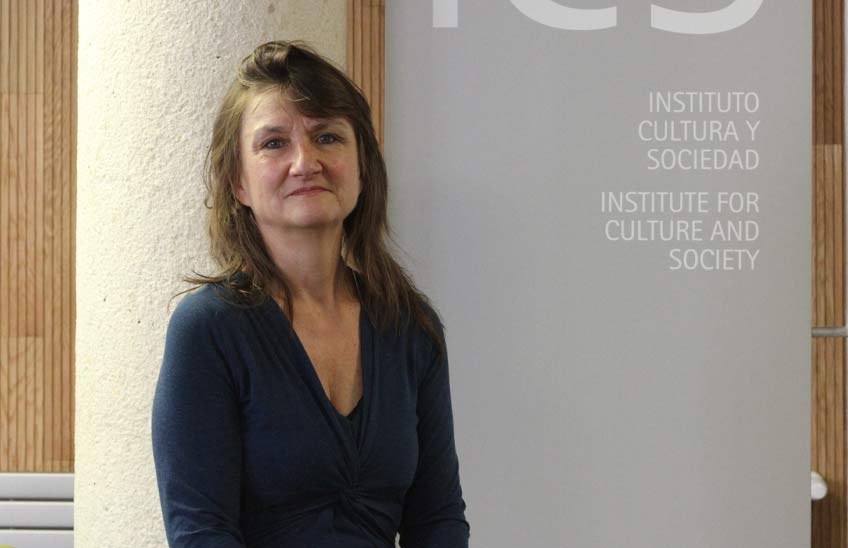"Moving to the rural environment without integrating with neighbors destroys social cohesion."
The Dutch researcher Bettina Bock spoke at the presentation in the Comunidad Foral of a European project related to social innovation in the face of depopulation in which the University is participating.

FotoBerta Viteri<br>/Bettina Bock, profesora de la Universidad de Groningen y la Universidad de Wageningen.
11 | 03 | 2022
"Moving to the rural environment without integrating with neighbors destroys social cohesion." So said Bettina Bock, professor at the University of Groningen and Wageningen University, specializing in population decline and rural development . The researcher has visited the University of Navarra to participate in the presentation of the European project KiNESIS, of which partner is group 'Public discourse' del Institute for Culture and Society (ICS).
Bock thus referred to one of the risks of a phenomenon that has experienced a boom during the pandemic, the displacement of urbanites to rural areas. Along with this, he added another problem: the purchase of second homes makes housing more expensive and makes it more difficult for the indigenous population to access them.
"There are rural areas where it has become very difficult to buy a house because they have become tourist rental properties, because they are being used as second homes, because people are buying houses to speculate...", he added.
Professor Bock said that the status caused by Covid has been a learning opportunity, especially in terms of social bonds. "The lack of connection with others has caused a lot of suffering," she said.
"Many people have experienced that the city is no longer so attractive. It has been seen as a claustrophobic and dangerous place," he reflected. "Perhaps we have started to realise how artificial the urban environment is.
Mutual dependence between the city and the rural world
The expert indicated that relations between cities and rural areas have been marked by an erroneous understanding of the city as a "modern achievement", while the rural area is perceived as "something old-fashioned that has to be left behind".
"The city is understood as self-sufficient because it has the technology", he commented. However, he pointed out that "food, clean air, water, as well as many forms of energy and industry come from the rural world". He emphasised that understanding the mutual dependence that exists between the city and the rural world "is fundamental for the development of both".
Bettina Bock is part of the team researcher of KiNESIS, a three-year project co-funded by the European Commission's Erasmus+ Programme. Her goal is addressing depopulation with new, innovative and interdisciplinary approaches, which are applied at teaching and learning. To do so, it relies on the creation of a network of exchange, flow and co-creation of knowledge at local and global levels.
→ Interview with Bettina Bock on the blog of the. Institute for Culture and Society
